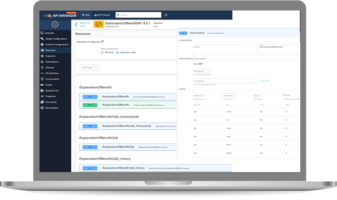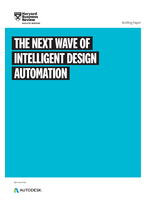New WSO2 Open Healthcare Software Offers Customers to connect Healthcare Source Systems
Press Release Summary:

- Provides number of resources that cover best practices in healthcare interoperability and how to comply with CMS and ONC mandates
- Can fast-track compliance with the Office of the National Coordinator for Health Information Technology (ONC)
- Ideal for healthcare payers and insurers, healthcare providers, hospital networks, pharmacy benefit managers, healthcare organizations, and others serving the healthcare market
Original Press Release:
New WSO2 Open Healthcare Solution Streamlines Compliance with US Information Access Regulations via FHIR APIs
Purpose-built WSO2 Healthcare Solution goes beyond basic accelerators to provide a complete platform for fast-tracking API-driven compliance and digital business innovation
Mountain View, CA – September 29, 2020 – APIs are at the heart of efforts by the US Centers for Medicare & Medicaid Services (CMS) to give patients ready access to their healthcare information. For healthcare insurance companies and other healthcare payers, this means complying with the Patient Access API and Provider Directory API requirements of the CMS Interoperability and Patient Access Final Rule (CMS-9115-F) no later than July 1, 2021. With today’s launch of WSO2 Open Healthcare, organizations now have an all-in-one solution that enables most customers to achieve CMS-9115-F compliance within three months.
Using WSO2 Open Healthcare, enterprises in the healthcare industry can also fast-track compliance with the Office of the National Coordinator for Health Information Technology (ONC) 21st Century Cures Act: Interoperability and Information Blocking. By using APIs to comply with the Cures Act, healthcare organizations can avoid penalties of up to $1 million per violation.
Enabling API-Driven Compliance and New Business Models
WSO2 Open Healthcare is purpose-built for healthcare payers and insurers, healthcare providers, hospital networks, pharmacy benefit managers, healthcare organizations, and others serving the healthcare market. The interoperability solution goes beyond basic healthcare accelerators to provide healthcare organizations with the foundation for implementing a comprehensive digital API strategy. Leveraging years of healthcare industry implementation expertise, it is built on WSO2’s market-leading API management, integration, and customer identity and access management (CIAM) platforms. Additionally, the solution runs in the cloud, on-premises, and in hybrid environments to maximize deployment flexibility.
Using WSO2 Open Healthcare, customers can connect healthcare source systems in formats, such as Fast Healthcare Interoperability Resources (FHIR) APIs, the Health Level Seven (HL7) standard, and X12 Electronic Data Interchange (EDI) standard, as well as custom format. The solution then translates, validates and exposes them as FHIR APIs that comply with standards set by HL7, US Core Implementation Guide, Da Vinci Project, and the CARIN Alliance. Additionally, robust API management functionality enables healthcare organizations to go beyond compliance and create new business models by turning APIs into products, monetizing APIs, and building API marketplaces.
“The US healthcare industry is currently focused on complying with CMS and ONC regulations to ensure safe, open access to patient information. But, the API-driven interoperability required for this compliance also presents opportunities to create new business models by packaging data and services as API products that can be shared and monetized,” said WSO2 Vice President of Solutions Architecture Mifan Careem. “Through our new WSO2 Open Healthcare solution, we’re giving healthcare organizations a comprehensive platform for streamlining compliance today and driving innovation across their digital business initiatives tomorrow.”
Developed for Healthcare Customers’ Real-World Needs
WSO2 Open Healthcare was developed using the experience that WSO2 has gained from working with some of the world’s largest organizations in the healthcare industry. Recently two of these customers spoke at the WSO2 Summit – Americas virtual event, which was held August 26-27, 2020. Recordings of the event sessions can be viewed at https://wso2.com/summit/august-2020.
In the session, “One FHIR Service, 180 Facilities, 36 Million Patient Visits,” Director of Data Innovation Tim Dunnington discussed the use of FHIR and API management functionality at a large healthcare provider, which enabled its applications to handle up to 1 million messages per day. While the FHIR services were developed for internal applications, the process and outcome were similar to those for CMS compliance. Tim noted, “Now we have 360 connections that we're hiding behind the scenes here, while the consumer application is none the wiser. They just continue to have their one connection. And of course, that's fronted by the WSO2 API gateway product, the APM, which is brokering all of the security and managing all of the connectivity through to these backend services.”
Best Practices on Interoperability via FHIR APIs
WSO2 provides a number of resources that cover best practices in healthcare interoperability and how to comply with CMS and ONC mandates.
A new whitepaper, “Healthcare API Interoperability – An Implementation Guideline” serves as a pragmatic guide on how to address the CMS Interoperability and Patient Access API rule for US healthcare payers, as well as general interoperability for healthcare providers. The paper looks at the CMS rule in detail, who it applies to, and the timelines. Additionally, it examines the implementation steps required for compliance, including data source identification, verification, and technology selection. The paper also discusses how the features of WSO2 Open Healthcare can be used to satisfy the regulatory requirements and beyond. The paper can be downloaded at https://wso2.com/whitepapers/healthcare-api-interoperability-an-implementation-guideline.
Additionally, WSO2 Senior Lead Solutions Engineer Nirmal Fernando has presented two sessions, which are now available via video:
- The WSO2 Summit – Americas presentation, “Towards Greater Interoperability With A Proven Integration Platform and FHIR,” can be viewed by going to: https://wso2.com/library/summit-2020/americas/towards-greater-interoperability-with-a-proven-integration-platform-and-FHIR.
- The webinar, “Building an Integrated Healthcare Platform with FHIR,” can be seen at: https://wso2.com/library/webinars/building-an-integrated-healthcare-platform-with-fhir.
Availability
WSO2 Open Healthcare is available today as a cloud-based, on-premises or hybrid solution. It can be deployed as a software download that runs directly on servers, on top of a private platform as a service (PaaS), or on top of infrastructure as a service (IaaS), such as Amazon Elastic Computing Cloud (EC2), Linux Kernel Virtual Machine (KVM), and VMware ESX. Additionally, customers can choose to have WSO2 host the software through WSO2 Managed Cloud hosted services. Organizations can learn more about features, functionality, pricing, and how to set up a test solution; schedule a demo with a healthcare solution architect; or sign up for a free tenant by visiting https://wso2.com/solutions/healthcare.
About WSO2
Founded in 2005, WSO2 enables the composable enterprise. Our open source, API-first, and decentralized approach helps developers and architects to be more productive and rapidly build digital products to meet demand. Customers choose us for our broad, integrated platform, approach to open source, and digital transformation methodology. The company’s hybrid platform for developing, reusing, running, and managing integrations prevents lock-in through open source software that runs on-premises or in the cloud. With offices in Australia, Brazil, Germany, Sri Lanka, the UK, and the US, WSO2 employs over 650 engineers, consultants, and professionals worldwide. Today, hundreds of leading brands and thousands of global projects execute over 6 trillion transactions annually using WSO2 integration technologies. Visit https://wso2.com to learn more. Follow WSO2 on LinkedIn and Twitter.
PR Contact
Molly Ryner
Lewis Global Communications for WSO2
molly.ryner@teamlewis.com
619-308-5238




